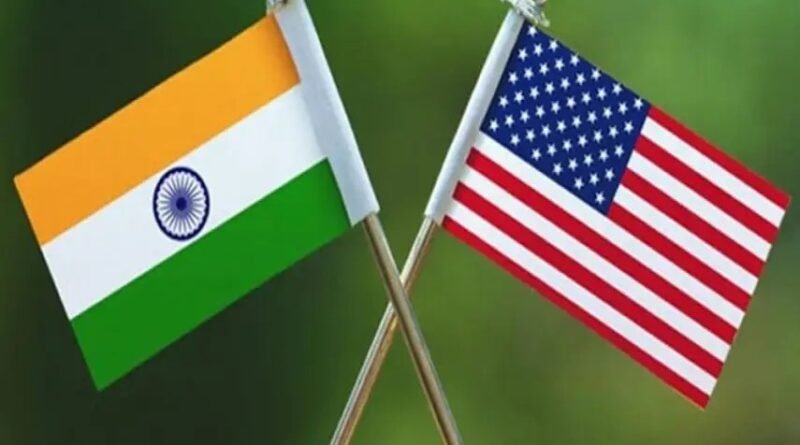LoC to LAC Let-up For India as Biden Administration in US Turns A Month Old
New Delhi: The last week has seen two crucial developments for India — the disengagement on the North and the South Bank of Pangong Lake at the Line of Actual Control and the recommitment to the 2003 ceasefire at the Line of Control.
India and Pakistan released a joint statement on Thursday stating, “Both sides agreed for strict observance of all agreements, understandings and cease firing along the Line of Control and all other sectors with effect from midnight 24/25 Feb 2021.”
The ceasefire understanding of 2003 has been violated routinely over the last two years. In a written reply to the Lok Sabha, the Home Ministry said on February 2, 2021 that the ceasefire violations by Pakistan “reported from the IB/LoC in Jammu and Kashmir” stood at 5,133 in 2020 and the number of civilians killed was 22.
While the spokesperson for the Ministry of External Affairs, Anurag Srivastava, said that India desires normal neighbourly relations with Pakistan but also underlined “We have always maintained that we are committed to addressing issues, if any, in a peaceful bilateral manner. On key issues, our position remains unchanged. I don’t need to reiterate it.”
Amidst all this, the Pakistan National Security Advisor tweeted saying that reports claiming “back-channel diplomacy between him and Indian National Security Advisor Ajit Doval for the ceasefire announcement are “baseless”. He further tweeted to say, “The welcome development on the LoC is a result of discussions through the established channel of DGMOs. Obviously these are by their very nature not in public eye and done privately and professionally through direct channel.”
The matter took another turn when the US State Department made a suo moto mention of the developments. Spokesperson Ned Price said, “We welcome a joint — the joint statement between India and Pakistan that the two countries have agreed to maintain strict observance of a ceasefire along the Line of Control starting on February 25th.”
While responding to a question about and if there was a US role, Price suggested that there was certainly a nudge from the US administration. He said, “I can say and what you’ve heard me say from this podium and others from this administration say is that we had called on the parties to reduce tensions along the Line of Control by returning to that 2003 ceasefire agreement.”
An important point from India’s perspective that Price made was that the US has “been very clear that we condemn the terrorists who seek to infiltrate across the Line of Control.” India has repeatedly mentioned that unprovoked ceasefire violations take place from across the border to provide cover fire for terrorists to infiltrate into the Indian territory.
Even as the talks between the DGMOs resulted in a commitment for cessation of hostilities on the border with Pakistan, on the LAC front External Affairs Minister S Jaishankar had a phone conversation with Chinese Foreign Minister Wang Yi. The 1 hour 15 minute conversation was the first after the successful disengagement at the North and South Pangong Lake in Eastern Ladakh. The Ministry of External Affairs termed the disengagement as a “significant first step” forming a basis for the disengagement on all the other friction points. The detailed statement from India said, “EAM emphasized that both sides should now quickly resolve the remaining issues along the LAC in Eastern Ladakh.”
The divergence in the Indian statement and the read out from China was that while India stressed once again that border tranquility and peace was important for the growth of overall bilateral relations, China tried to delink the two.
According to the Indian statement, S Jaishankar “highlighted that both sides had always agreed that maintenance of peace and tranquility in border areas was essential basis for development of bilateral relations” and that the “bilateral relations have been impacted severely over last year.”
The Chinese read out in sharp contrast said that “While that the two countries have boundary disputes is an objective fact, which should be taken seriously, it is not the whole of China-India relations, and it should be put at a proper place in the overall bilateral relations.”
Several analysts believe that sensing that the new US President Joe Biden is likely to be just as tough on China as Donald Trump though with a different approach, Beijing is closing fronts on other ends to take on the new US administration.
On February 9, the US navy conducted exercises in the South China Sea which Beijing had referred to as “muscle flexing” by America. A day later, Joe Biden held his first phone call after his inauguration with Chinese President Xi Jinping. In the two hour long phone call, President Biden called out China for aggression in the region, including bringing up the sensitive issue of Taiwan with China.
With the US factor in the backdrop, it appears that various players could be hedging their bets at the moment. So, the question for India is whether it can trust its neighbours just yet? (News18)




